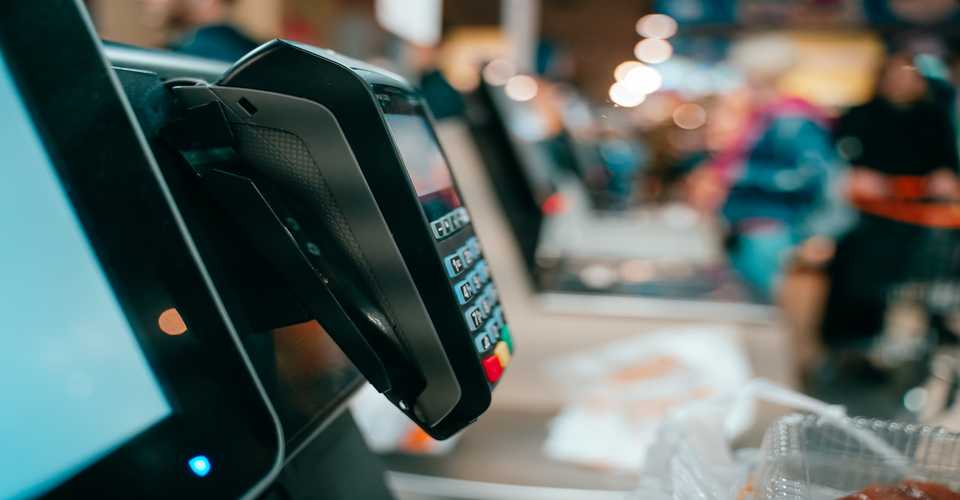A modern POS system is a combination of hardware and software that does more than just conducting a transaction. What most business owners don’t realize, however, is that the POS machine is just as important as the software. In today’s article, we will go through the key things of what an offline POS machine is and its tangible benefits.
Overview
What is an Offline POS machine?
The offline POS machine, also known as POS hardware, is all the input and output that make the POS software function. Nowadays, the offline POS machine can vary from a traditional computer setup to an iPad cash register. Following are a few types of POS machines that make up a POS hardware setup.

Offline POS machine you will need
POS terminal
The POS terminal is usually a desktop computer, laptop, tablet, or even smartphone with a touchscreen interface that allows customers and merchants to complete purchases. Often, the terminal is placed on a high stand for the convenience of both parties.
Customer screen
The customer screen displays order information to customers, from the order itself to tax, discounts, and loyalty program information during the checkout process. This offline POS machine helps retailers improve their customer service experience, plus gain trust and loyalty from clients.

Credit card reader
This piece of POS machine assists retailers with taking debit and credit card payments. You can opt for a basic credit card reader for swiped payments, or a versatile one that accepts both swiped and chip-card transactions, as well as contactless mobile payments.
A POS system that is compatible with various global payment gateways, such as Paypal or Tyro would be the best to carry out seamless payment transactions.
Our ConnectPOS, a leading cloud-based POS for omnichannel retail, integrates with many payment gateways and requires no additional fee for the third party, offering a seamless shopping experience for shoppers.
►►►► Please visit our products: digital banking, situation analysis, Shopify markets, Vietnam Photography Tour, Photography Tour Guide Viet Nam, supply chain operations management, fintech ai, Multi Store POS, Woocommerce POS, Mobile POS, White label POS, POS Reseller, Beauty Supply Store POS, Retail POS and Vape shop POS
Cash drawer
A cash drawer is indeed necessary for a business since we aren’t yet considered to live in a completely cashless society. A cash drawer helps you easily manage and keep track of the cash, usually in a shift or a day. Buyers can pay with cash and receive exact change in response.

Receipt printer
It is common practice to give the customer a receipt at the end of every transaction. Digital receipts are now on the rise, but some customers still want printed ones. Receipts provide a record of transactions so customers can use them to expense or return items if it is not satisfactory.

Barcode scanner
Barcode scanners are for retail shops selling products with a barcode. The main function is to scan items so that they can be noticed on the system. Barcode scanners also eliminate troubles that could happen due to mistyping a product. Like cash drawers and receipt printers, they often connect to the POS terminal wirelessly or via USB.

Benefits of using an offline POS machine in a retail business
A good POS system is a compound of a functional software system and a robust offline machine. It will reduce the amount of time you need to spend on administrative tasks, and let you focus on more important aspects of your business. Human errors would be minimized with POS management features combined with POS machines like barcode scanners.
Even if you don’t have a sales and marketing strategy yet, an offline POS machine can help you determine whether your current sales techniques are working. For example, POS systems can show you which items sell the best, which staff members make the most sales, and which payment methods are frequently used via a dashboard on the POS terminal. A data-based sales process that works for your business can also be developed thoroughly.
To wrap it up
Having all these offline POS machines can benefit a business in many ways. It can improve sales revenue, keep inventory at manageable levels, increase employee productivity, and enhance customer satisfaction.

